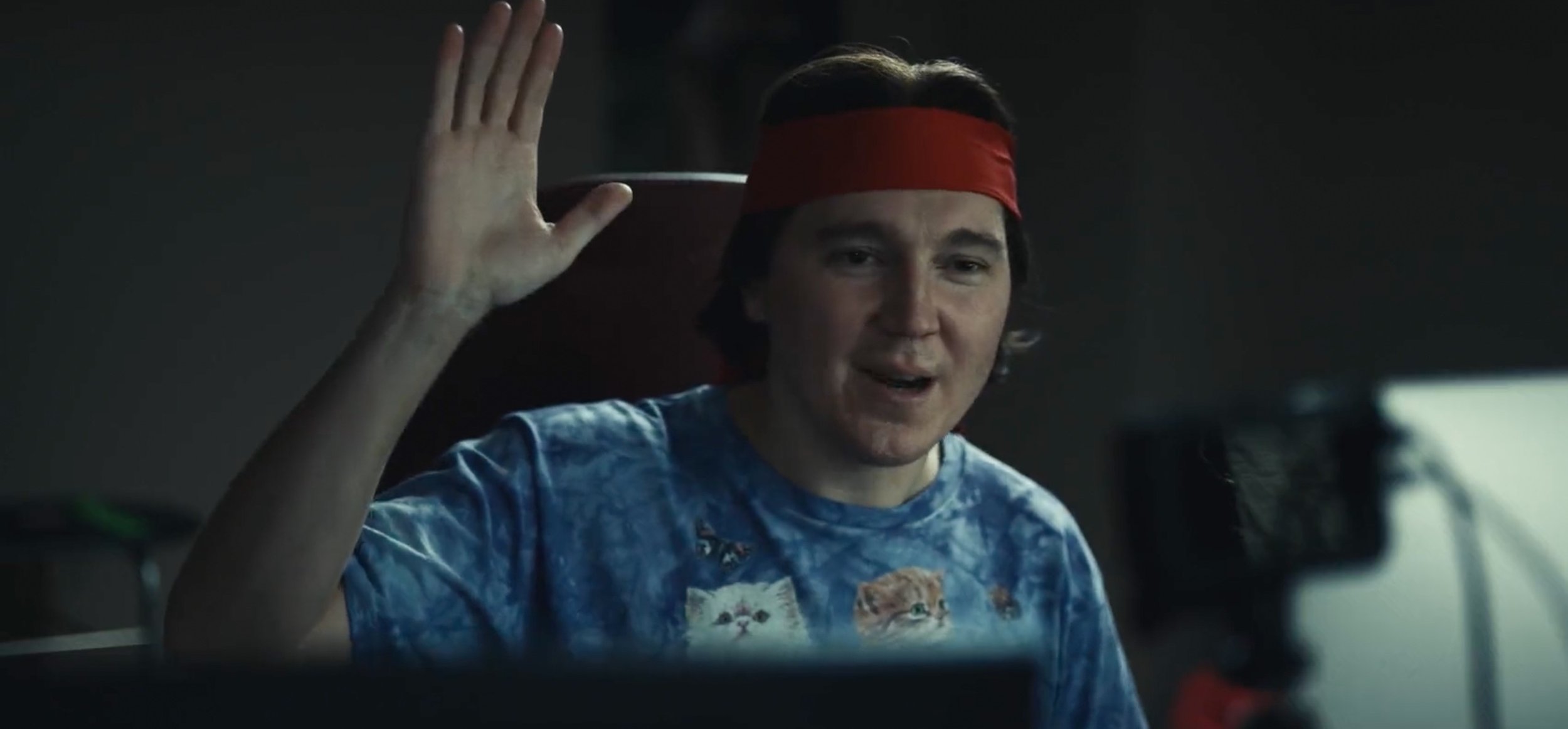‘Dumb Money’ Is a Smart and Funny True Story About the GameStop Craze
Producer Aaron Ryder beat out the competition to bring 2021's craziest business story to the big screen — and the results are stellar for the TIFF world premiere.
https://www.indiewire.com/features/general/dumb-money-producer-gamestop-movie-1234904073/
Aaron Ryder was in a hurry. He knew other producers were chasing the GameStop story that was flooding headlines in 2021, as day traders ran up the stock for the brick-mortar store that had been shorted by several hedge funds. One single investor, Keith Gill (Paul Dano) believed the stock was undervalued and plowed his life savings into it. “You don’t even own a house!” a frustrated friend tells him in “Dumb Money” (September 15, Sony) the movie adapted by former investigative reporters Lauren Schuker Blum and Rebecca Angelo from Ben Mezrich’s book “The Antisocial Network: The GameStop Short Squeeze and the Ragtag Group of Amateur Traders That Brought Wall Street to Its Knees,” with Craig Gillespie (“I, Tonya”) at the helm.
It all started during the pandemic in January 2021 when Ryder, who had built the film production division of FilmNation before new MGM chief Mike DeLuca offered him a first-look deal, was under quarantine in Canada and turning to the Internet for company. He followed the GameStop craze and saw a movie. “And I was getting on the Reddit board and reading Wall Street Bets. And I knew Gamestop from the malls.” And then the phone rang. And it was Pam Abdy from MGM asking if he was tracking GameStop.
“I’m all over this,” he told her. “I knew what I needed more than anything else was a piece of IP that would scare everybody else away. Because I knew everyone was chasing great headlines. And so with the help of MGM, I heard that Ben Mezrich had a book proposal. We got hold of it, and convinced him. The whole thing took place in less than six days. The writer of ‘The Social Network’: that’s certainly helpful. We made that announcement later that week and that pushed everybody else aside, or at least pushed us ahead of the pack.”
Quickly Ryder assembled the team of Gillespie and the former Wall Street Journal writers who researched the anti-Wall Streeters as Mezrich whipped through writing the book. “It was a really intense six months, but we turned out a script fairly quickly,” said Ryder. “Movies get made when that first draft comes in, and it’s really far down the field, it’s well structured, it comes together nicely. If you’re only 10-15 percent of the way there, it’ll linger in development hell but this just leapt forward because the script was so strong.”
But a sudden management shift when Amazon bought MGM sent DeLuca and Abdy out the door (they are now at Warner Bros.) and stopped the progress toward a green light, and Amazon put the movie in turnaround. Ryder wanted to supply the international markets with a commercial movie and go theatrical. “We had Gillespie, Seth Rogen, Pete Davidson, Paul Dano, and Sebastian Stan,” he said. “This movie is different from ‘The Big Short’ in that it has a very strong David versus Goliath theme. That’s the thing that sets it apart and will win the day for it. Our film can reach maybe as wide if not a wider audience.”
Ryder made the film independently, bringing in Teddy Schwarzman’s Black Bear to set up foreign financing around the world, and sold domestic rights to Sony. “This movie is a movie about a movement of young people stuck at home looking at the Internet and trying to protect something they all enjoyed, this brick and mortar store about video games.” said Ryder. “Doesn’t that feel like it should be made outside the system, outside of big giant and companies, outside of a company as big as Amazon? I feel like right now, if you have something that’s commercially viable, it’s a really, really strong, vibrant market. People want to go back to movie theaters. They’re looking for quality. They’re not just interested in seeing something because it’s on TV.”
Ryder and the cast were looking forward to coming together in Toronto — but due to the actors’ strike, that wasn’t meant to be. “The actors hadn’t met each other,” said Ryder. “It’s a compartmentalized way of shooting a movie. You have Seth Rogen’s storyline, and you have Paul Dano’s storyline, he’s with Shailene Woodley, but not with Sebastian Stan. So a lot of them don’t intersect. So it was like, each week, we had a new star in our movie. So it was very disruptive to not have them here and helping promote the movie.”
“Dumb Money” could pull moviegoers into theaters with its sprawling cast and engaging populist story. But Ryder is worried about what’s next. “After the pandemic, everybody rushed to get things made,” he said. “The streamers were incredibly prolific, and it produced a glut. And I think quality suffered. Quality was the casualty from that. Suddenly there was a demand and let’s be honest, this has been a business that does not adhere to the general rule of supply and demand. Because for years now we’ve been on supply supply supply. Suddenly, after the pandemic, there was a demand because people consuming so much media. And my fear is, once the strikes end, and you go back into that production rush, I hope we don’t fall in the same trap.”
